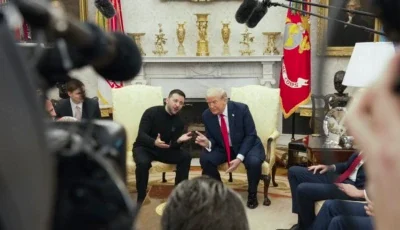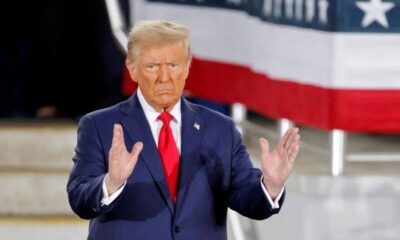CELEBRITY
Biden’s Sweeping Pardon for Son Rewrites the Rules of Presidential Power.

In an unprecedented move, President Joe Biden has issued a sweeping pardon for his son, Hunter Biden, effectively rewriting the playbook on presidential pardons and the boundaries of executive power. The decision is already sparking heated debates across the political spectrum, with critics raising concerns about potential conflicts of interest, while supporters see it as an act of personal justice.
Hunter Biden, who has faced scrutiny over his business dealings and personal issues, is at the center of a legal storm. Though he has been under investigation for tax-related matters and his involvement in foreign business ventures, no formal charges have been brought against him. The pardon, which covers multiple potential offenses, sends shockwaves through the halls of Washington, D.C., and signals a dramatic shift in the use of presidential clemency.
The move is particularly notable because pardons, while within the president’s constitutional powers, are rarely used to clear family members of potential legal trouble. This sweeping pardon is being described as both a highly personal gesture and a bold political statement. Many see it as an attempt by President Biden to protect his family from the ongoing legal and political challenges, which have increasingly become a point of contention for both Republicans and Democrats.
In his official statement, President Biden expressed a commitment to fairness and justice, stating that the legal process would continue regardless of the pardon. However, he emphasized that his son’s difficulties have been “blown out of proportion” and that Hunter Biden’s past should not define his future.
While this pardon has ignited praise from Hunter Biden’s supporters, who argue that the family has faced enough public scrutiny, it has also drawn sharp criticism from across the aisle. Some critics accuse President Biden of using the power of the office for personal gain and political shielding. Critics argue that the president’s decision could lead to questions about the integrity of the justice system, with detractors claiming that it sets a dangerous precedent for future administrations.
Republicans, in particular, have seized upon the pardon as a symbol of what they claim is a broader pattern of corruption within the Biden family. High-profile figures within the GOP have vowed to scrutinize the decision and question the timing, with some even demanding investigations into whether the pardon process was improperly influenced.
Legal experts are divided over the ramifications of this unprecedented action. Some argue that presidential pardons should be left to the discretion of the sitting president, citing historical precedents where presidents have granted clemency for family members or political allies. Others worry that this could open the door to future abuses of power, particularly in instances where personal connections blur the lines of justice.
The Biden pardon could alter how future presidents approach the use of their pardon powers. With increasing polarization, the political ramifications of such a move may redefine what is acceptable behavior for future administrations.




















